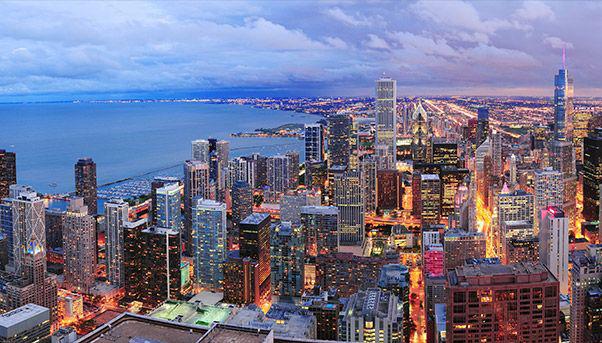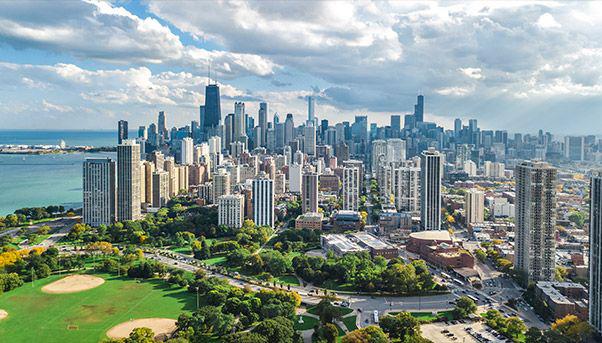
Chicago is divided into 77 communities, and it will soon have 78. New skyscrapers, a subway stop and residential complexes will all be built from scratch to create a sustainable, smart and modern city neighbourhood. The new area is called “The 78” and will cost $7.2 billion, making it one of the most important real estate development projects in the United States.
Related Midwest, the developer, started working last month on the Wells-Wentworth Connector, a major traffic artery that will connect city’s downtown with this isolated yet central area to its south which has languished undeveloped for decades. This is just the first step of a real estate project aiming to re-draw the urban landscape of one of the most important cities in the US.
A gargantuan and innovative project
The numbers tell the story. The development, which will rise between Clark Street, Roosevelt Road, 16th Street and the Chicago River, will have 4 million square feet (371,000 square meters) of office space in a huge corporate campus expected to attract 24,000 permanent jobs. The city has a real need for new housing. The 78 will add 5,000 new apartments to the market, of which around 1,000 will be set aside for families with lower incomes, according to the developer.
The project will include a 7-acre (2.8 hectare) public park, and will be home to the Discovery Partners Institute, a high-tech research center and incubator created in partnership with the University of Illinois. The state-wide public/private research network aims to serve 10,000 students every five years.
The area will be connected to other parts of the city by new infrastructure, as explained by Curt Bailey, the president of Related Midwest, in an interview with the magazine “Multi-Housing News.”
«Roads, rail and water taxis will lead to this tech hub, poised to be the city’s most desirable location for corporate tenants to work and live», he said «The 78’s master plan, created by Skidmore, Owings and Merrill, includes modern infrastructure with new connectivity to adjacent neighborhoods, cutting-edge architecture and a confluence of public amenities, including a 7-acre park».

The plan for new infrastructure
Work has started on the Wells — Wentworth Connector, the traffic artery that will connect the area with the city centre. The project aims to make The 78 accessible also by boats on the river, new inland waterways, a new subway stop, and the existing commuter railway that runs alongside. After the completion of the Connector in an estimated 14 months, another $850 million dollars will be invested to expand the Chicago Riverwalk green riverside area, move the Metra Tracks (and extend the railway line to Clark Street to the west), rebuild part of the Chicago River embankments and build a new CTA Red Line subway stop.
According to Related Midwest, private investment in the project will be able to generate net new spending of $40 billion over the next 30 years, creating 24,000 permanent jobs, and raise new annual city and state tax revenue of more than $220 million.
Hudson Yards and King’s Cross, two precedents
The 78 follows in the footsteps of two major urban development projects that have profoundly changed the faces of cities that host them: Hudson Yards in New York City and King’s Cross in London.
Hudson Yards cost over $20 billion and was inaugurated in 2019, hosting hotels, skyscrapers, shopping centers, and cultural spaces. It has altered the city’s real estate market along with its skyline, and just a few months after opening has already become the Big Apple’s most expensive area. According to the real estate company PropertyShark, the average cost of a Hudson Yards apartment is $5 million.
In London, the King’s Cross Central development transformed the surrounding area after an investment of £3 billion, the largest urban renovation project in Europe. A formerly disused area of 67 acres (27 hectares) north of the King’s Cross underground station has blossomed into a modern residential district, hosting Google’s London office. Facebook has announced that it will move there too.
The two developments are examples of how big cities can renew themselves. Chicago has now decided to see if it can do the same.

